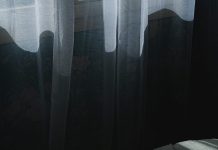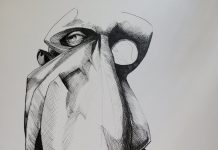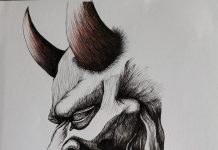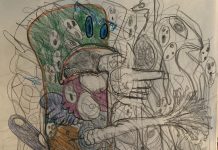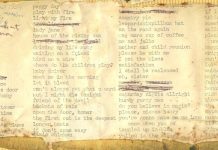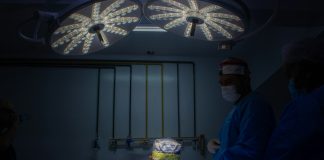Facing the ocean
(because you never turn your back to the water,
because the waves curl over themselves and rush up with rage
like thundering white hooves
and you could be somersaulted, thrown and rolled
along the rocky ocean floor, spun and jolted
like clothes in a washing machine, or
you could end up like a body
of mangled seaweed or
like the dead jelly fish that dry in the sun and sit folded
on the wet sand,
translucent crowns washed up on the shore),
the beach stretches to the left until it meets a rocky point,
and to the right
there is no end in sight.
There is no horizon; it is cloaked by fog,
and the waves are one with the mist and sky,
the whiteness amorphous and full;
pelicans’ silhouettes are the only holes
as they fly close to the water’s surface,
skimming with the tips of their wings,
dipping their beaks,
landing like spears.
On the brown, clumpy
seaweed and lost feathers and cigarette butt littered sand,
people lie face down and almost naked
like bloated seals under the unblinking sun.
Juvenile seagulls crowd at the high tide line;
I don’t know why,
but if I talk too loudly
they’ll scatter and spread their wings
and take a loop around the sky
before settling again.
Chatter drifts over abandoned sand castles and
squeals and hollers rise from the shallow foamy water
embraced by the beach and swimsuited children and me.
The water is cold but not biting.
The air is bright.
And I take the waves as they come,
jump into them,
let them push me back up the shore with the tide.
My dirty green shoes are unlaced
and beside my bare feet.
All nine buttons of my dress are undone.
And the roaring of the ocean is subdued
by a gentle breeze,
brushing my hair from my neck.
I eavesdrop and feel the softness of the sand between my toes
and running through my fingers
as fluid as the waves and wind and
the hours passing by.
And as the sun sets
across the waves still sweeping the shore,
the fog has left the sky and become a wall
where the ocean curves;
it looms like a wave about to crash,
and the pelicans return from fishing,
hundreds, I’d say, the most I’ve ever seen,
zig zagging the purple sky behind each other’s wings
to the rocks where they nest.
Soaring above us.
Our feet on the flat soft sand.
Seals’ faces bobbing in the waves
like hooded dark ghosts.
The ocean tonguing its way
over the small dunes to where we stand.
And we run from the water.
And gold light embroiders everything.
Up on the mountain by
this beach
is the place my grandfather died.
And the rocky point is
where my grandmother scattered his ashes.
She came here before and after cancer.
Before and after his death.
And with my sister and me
summer after summer.
And every time I come
I kiss the sand.


